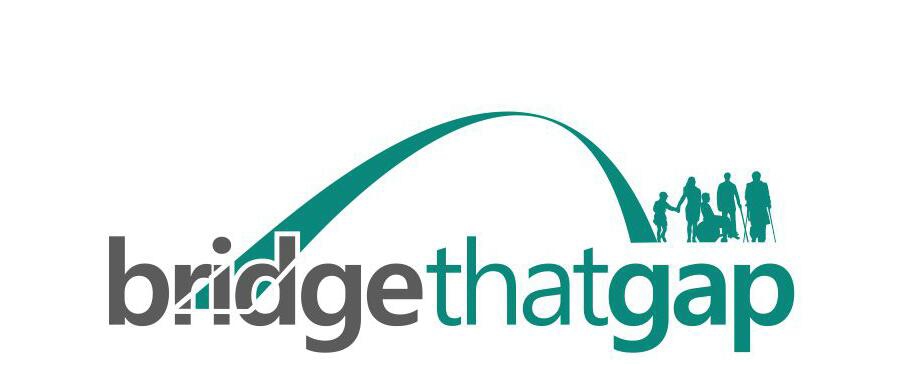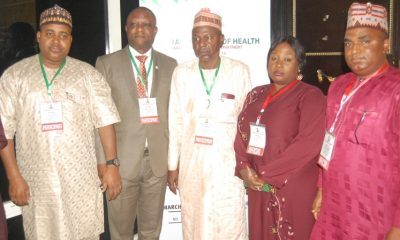Environment
FG worries over environmental challenges, assures effective implementation of projects

The Federal Government on Monday expressed worry over environmental challenges but assured of effective implementation of projects, programmes and policies that would address such challenges appropriately across the country.
Chief Sharon Ikeazor, Minister of State for Environment, gave the assurance at a ministerial briefing organised by the ministry in Abuja.
Ikeazor said that the ministry would continue to strive in achieving the set mandates despite all challenges while repositioning the agencies in the ministry for effective implementation of policies, regulations and projects.
She said the purpose of the briefing was to update the public on the ministry`s priority areas of focus in 2022, adding that the challenges are adversely affecting the lives and livelihood of the people.
She said that Nigeria has been facing several environmental challenges from desertification in the North, to flooding and coastal erosion in the South, deforestation, land degradation, pollution, loss of biodiversity and adverse impacts of climate change.
According to her, “we have been working with development partners, line ministries, MDAs, NGOs and CSOs, to address and ameliorate these problems through our policies, action plans and environmental regulations and projects.
She said that the ministry had established several policies to ensure that the problems are address, adding that some of the policies are in the National Policy on Environment.
She added that policies include the National policy on solid waste management, National Policy on Plastic waste management, National Action plan on gender and climate change, among others.
“In the area of afforestation, the national afforestation programme, under the green bond project, has successfully forested 6,191,363 hectares of land implemented by the Forest Research Institute of Nigeria (FRIN),
“In addition, a total of 6,550,056 seedlings raised, distributed to state governments and institutions, were planted by FRIN,’’ she said.
Ikeazor said that Nigeria is classified as one of the 10th most vulnerable countries in the world climate change, adding that it has really posed a serious threat to poverty eradication and sustainable development in general.
“This is because the country has a large rural population that lives on climate-sensitive economic and development sectors agriculture and fisheries and natural resources, such as water, biodiversity and grassland.
“The cost of not addressing climate change or not adapting to it is very high and certainly the social consequences are enormous.
“In this regard, we have made significant strides in the area of climate change adaptation by developing a National Adaptation Communication (ADCOM) document,” she said.
The minister said that the document provided a mechanism for Nigeria to report “priorities, implementation and support needs, plans and actions”.
She said that the most critical step taken towards playing effective role in climate change mitigation and adaptation was the realization of the Climate Change Act in November 2021.
“The Act provides for the establishment of the National Council on Climate Change, which will have the powers of policy making and decisions on all matters related to climate change in Nigeria.
“Nigeria’s Climate Change law provides a legal framework for Nigeria’s efforts at Climate Change mitigation and adaptation in an overarching manner.
“The Act establishes the Climate Change Fund which will help Nigeria address issues of adaptation, loss and damage, innovations to reduce Greenhouse Gas (GHG) Emissions, development of technology for renewable energy and transition to a green economy.
“Meanwhile, as part of efforts to ensure that the country meets its target of attaining net zero by 2060, the Act provides for the phenomenon of carbon budgeting.
“The carbon budgeting will be set in a five-yearly cycle with annual targets assigned to private and public entities, with the council imbued with the powers to monitor and ensure that set budgets and targets are met as at when due.
Ikeazor said that the ministry would continue to collaborate with other relevant stakeholders to ensure that environmental challenges are effectively tackled across the country.
Mr Hassan Musa, Permanent Secretary in the ministry, said that the environment was one of the most dynamic of all sectors in the life of humanity.
Musa said that the concern for the ministry was mandated to ensure effective coordination of all environmental matters, which were hitherto fragmented and domiciled in different line ministries.
“It has focused on evolving innovative strategies that emphasize the use of environmental re-engineering as a veritable tool for poverty eradication, food security, sustainable economic development and improvement in the livelihood of the Nigerian populace,’’ he said. (NAN)
Environment
BTG set to Tackle Environmental Degradation in Kaduna

In a bid to tackle environmental degradation impacting negatively on communities in Kaduna state, Bridge That Gap Hope for Africa Initiative (BTG), in partnership with the Network of Civil Society in Environment (NCSE) has launched a transformative project aimed at empowering women and advancing sustainable climate governance.
Executive Director Bridge that Gap Hope for Africa Initiative (BTG), Gloria Kasang Bulus, who dropped the hint in Kaduna during the week, regretted that environmental disasters and shocks have deepened poverty and eco-anxiety among women who remain grossly under-represented in decision-making.
The project is tagged “Women Empowerment and Climate Resilience Initiative”While revealing that the project would focus on three Local Government Areas of Zaria, Chikun, and Zango Kataf, Ms Bulus stated that reports from these three local councils were troubling because “they show high levels of environmental degradation, food insecurity and limited female representation in governance structures”
“Kaduna state faces a troubling mix of environmental, social, and economic challenges.
From extensive deforestation and desertification to resource shortages and ecosystem breakdowns, the impacts of climate change have become severe. A report by Global Forest Watch shows that in 2023 alone, the state lost over 5,400 hectares of natural forest, leading to 1.94 million metric tons of CO₂ emissions.These environmental shocks have worsened poverty and eco-anxiety, especially among women who are disproportionately affected but remain underrepresented in decision-making. Although women play important roles in agriculture, small businesses, and household sustainability, they often lack access to platforms and resources that could help them influence climate policies and local development strategies.
The project focuses on LGAs with some of the worst environmental records:
- Zaria LGA suffers from massive vegetation loss due to fuelwood consumption, which accounts for nearly 40% of its deforestation. According to satellite data from 1973 to 2014, over 80% of vegetation in the area has been degraded, highlighting the urgent need for clean energy alternatives and community-led environmental restoration (Global Forest Watch).
- Zango Kataf LGA faces challenges from erratic rainfall, rising temperatures, and soil degradation. Women and internally displaced persons are especially vulnerable to water shortages and land conflicts, worsened by deforestation caused by agricultural practices.
- Chikun LGA, especially communities like Kakau Daji, is experiencing rapid environmental decline due to firewood collection and industrial pollution from nearby petrochemical plants. The ecosystem has suffered from biodiversity loss, soil erosion, and toxic emissions.
With women at the forefront
focusing on gender inclusion and environmental sustainability, the project aims to strengthen women-led coalitions by improving their policy advocacy skills, providing them with energy-efficient cookstoves, and developing a climate action plan that considers gender and Persons with Disabilities (PWD) in line with the Kaduna State Climate Change Policy.
“Women are central to community life. They manage natural resources, care for households, and make significant contributions to the economy.
“However, they still face marginalization in important decisions about the environment and development. By providing women with advocacy tools and encouraging cooperation among policymakers, civil society, and the private sector, the project aims to change this situation”, Bulus volunteered.
According to her, the goals of the initiative is built around four core objectives:
*Enhancing Policy Advocacy Capacity – Training women’s groups to participate in governance structures and advocate for inclusive climate strategies.
*Developing Inclusive Climate Action Plans – Ensuring that gender and PWD perspectives are prioritized in environmental policies.
*Promoting Climate Adaptation – Implementing grassroots solutions like reforestation, clean energy use, and climate-smart agriculture.
*Strengthening Multi-Stakeholder Collaboration – Fostering collaboration among women’s coalitions, government agencies, and environmental stakeholders.
She assured that her organization remains determined to build sustainable communities by removing barriers to basic rights of vulnerable populations.
The organization has also concluded preparations to plant 15,000 trees in the state. To date, over three thousand (3000) economic and forest trees have been planted in Chikun LGA and its environs.
She further disclosed:
“Journalists in Kaduna will also receive training to enhance their skills in effective writing and reporting on climate change-related issues.
“The Partnership for Agile Governance and Climate Engagement (PACE) Project supports coalitions that influence governments to address climate and governance issues affecting the poorest and most vulnerable communities. It aims to boost state government revenue from internal sources, integrate climate actions into state policy, planning, and budgets, and enhance election delivery and credibility.
The program, she stated, is being carried out in Kaduna, Kano, and Jigawa in northwestern Nigeria, with focused strategic engagement at both federal and regional levels.
Environment
First Lady Seeks Lasting Solution to Eradicate Environmental Pollution

The First Lady, Sen. Oluremi Tinubu has called for a lasting solution to eradicate environmental pollution caused by plastic wastes.
In her message to mark the year 2025 World Environment Day, with the theme ‘Ending Plastic Pollution’, in Abuja on Thursday, the first lady also advised people to curtail the way they consume food and drinks packaged in plastics.
“I join millions of Nigerians and the world in calling for urgent and united action to safeguard our environment.
Plastic pollution has become one of the most pressing environmental challenges of our time, affecting our health, our environment, and our future.“In Nigeria, we must rise to this challenge by changing how we consume packaged food items and how we dispose of plastic containers and bags.
“I particularly want to speak to our youths, the leaders of tomorrow, be it in schools or within our neighborhoods, each of you has a role to play in creating a cleaner, healthier and greener Nigeria,” she said.
Mrs Tinubu had recently promised to introduce environmental solutions clubs to schools through her NGO, Renewed Hope Initiative (RHI).
“I want to use this opportunity to introduce our students to two programmes that the RHI will be launching soon.
“First is the Environment Club for Secondary School Students and the Environment Society for Students in Tertiary institutions nationwide to help us clean up our environment and grow more trees.
“Second is the “Flow with Confidence” for our girls in rural communities.
“This programme is to provide one year’s supply of disposable sanitary pads to our adolescent girls to support them to remain in school during their menstrual cycle,” She said.
NAN further reports that some of the functions of RHI environmental clubs in schools would include raising environmental awareness; fostering social and life skills; empowering students to take action and promoting sustainable behaviours.
The clubs can also enhance critical thinking and creativity, encourage healthy lifestyles, and strengthen communities.
The club would encourage students to participate in various environmental projects, like tree planting, recycling, and garden projects, gaining practical experience and deeper understanding.(NAN))
Environment
Billboard accident: Abia Govt. to Offset Victims’ Hospital Bills – ABSAA Official

Abia Government says it will offset the hospital bills of the Aba Billboard accident victims.
Mrs Victoria Onwubiko, Managing Director, Abia State Signage and Advertising Agency (ABSAA) made this known on Thursday in Aba at the Salad Market entrance, the site of the accident.
A big billboard fell on some passengers in five tricycles in Aba on Wednesday, following a boisterous wind, killing one person and injuring seven others.
Onwubiko said the governor had given the necessary approval for procedures regarding the victims’ treatment without hindrances.
“So, we are glad there are not going to be any more deaths; from what we have seen, the victims in the hospital are recovering and doing well.
“We understand that about eight persons were involved in the accident; five are at the Abia University Teaching Hospital, two have been discharged and one is died,” she said.
Onwubiko added that the governor had sent his Chief of Staff to the hospital for the proper management of the victims at ABSUTH, Aba.
According to her, there is no hoping that any one of them will go to the court as the state government is doing everything to take care of them.
He said ABSAA would ensure such accidents did not reoccur noting that henceforth the agency would inspect every advertising site in the state.
“We are going to ask the owners of sites like this to give us the technical drawings with which they built their sites.
“If we don’t see them, the bill board will come down for them to redo it to ensure safety,” she said.
The ABSAA MD said every site, whether high or low, which is not sound, will go down.
Mr Chinedu Nwibo, an eye-witness and a vulcaniser for tricycle operators, said there were seven persons at the entrance of the Salad Market on that Wednesday when the accident occurred.
“We were inside a little makeshift shop I had set up for my work when the rain started on Wednesday.
“The wind was very boisterous and some of the tricycle operators went into their tricycles to stay for the rain to stop.
“No sooner had they ran into their tricycles than a big iron pipe used to hoist a billboard fell on them.
“One Destiny Uguru, 27, from Izzi in Ebonyi state died from the accident while seven persons sustained injury,” he said.
Nwibo called on the government to come to the aid of the victims especially by replacing their tricycles.
“The man that lost his life has an expectant wife and two children,” he said. (NAN)


























